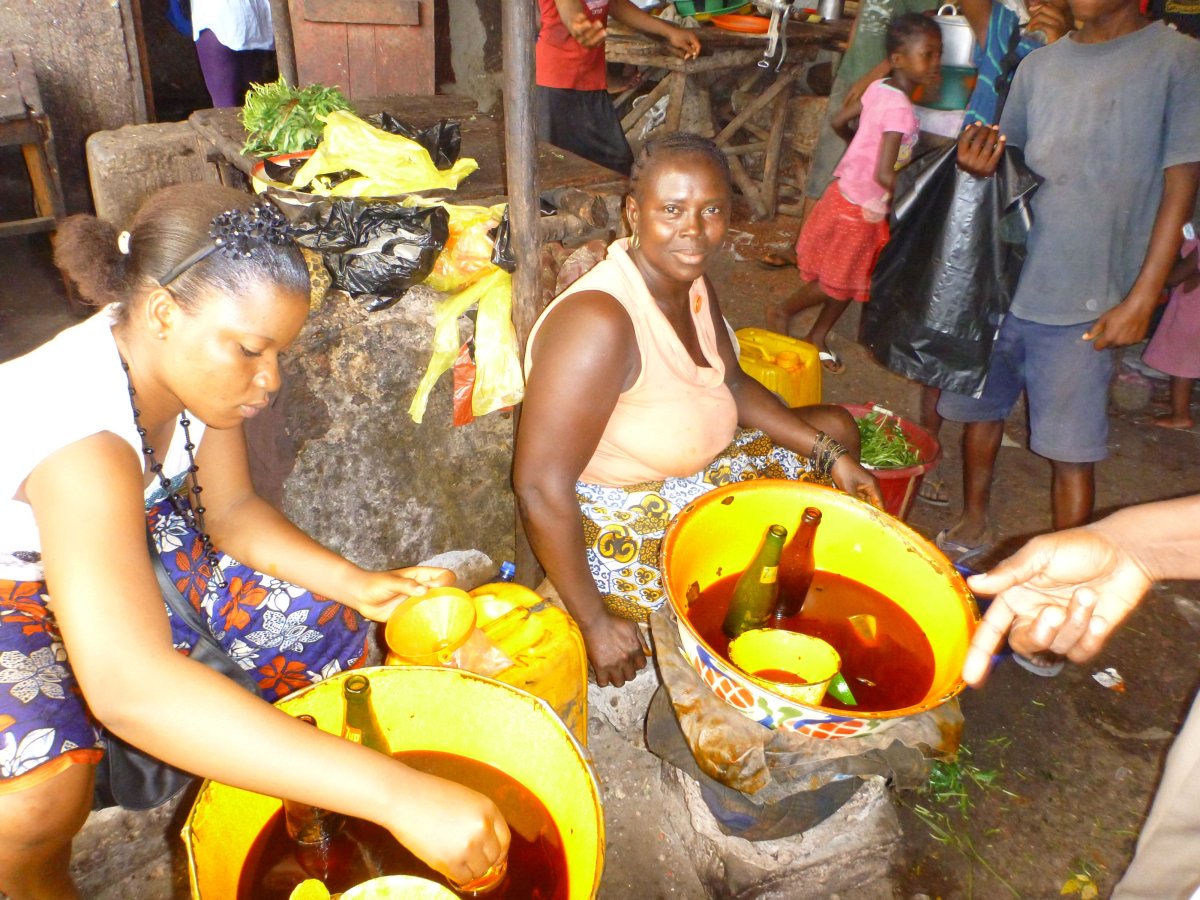“If you don’t like Kraft Dinner you won’t survive in the business.” These words were imprinted on the walls of my then sixteen year old brain when I decided I wanted to become a journalist. It was a warning echoed over and over again by seasoned broadcasters and professors alike as I worked my way through post secondary.

It’s well known journos don’t become Katie Courics overnight, and earning a decent salary in the beginning is a gradual and often tedious climb with no guarantees at the end. Those who really persevere and truly enjoy the work usually end up with a comfortable wage at the end. The women and men grinding it out in sweaty newsrooms in Sierra Leone can’t say the same. “I hate going to the market, I refuse to go anymore.”
These are the words of a fellow journalist as she climbs into the back seat of our one day rental car. One of my new colleagues sitting in the front seat spotted her standing under the punishing mid morning sun, waiting to pile into a shared taxi.
We are fighting our way through a web of unruly traffic where there seems potential for disaster at every awkward turn- she looks relieved as she squeezes in wiping a bead of sweat from her top lip. I ask her why she’s upset with the market “It’s too expensive, I just can’t take it anymore.” We are heading to Makeni and offer to drop her off at her destination as we make our way out of the capital city of Freetown.
She’s about to start the second phase of her long and busy day: A presenter in the morning, a reporter during the day, and an editor/ producer anywhere she finds a spare moment. In just the first minutes of sitting in the backseat with her it’s clear to me her work is probably her life. Along with her job at a radio station she’s dedicated her career to human rights reporting and mentoring reporters.
“The prices have gone up so much, we can’t afford it. Palm oil is produced right here in our country it now costs about Le 4000 per litre, about one dollar…we need it to cook our food in but that is my entire days pay and I haven’t even bought the fish yet.”
Since the elections in November food prices have skyrocketed, there have been fuel shortages and almost no electricity for two full weeks. The journalists I am travelling with tell me that before the election prices were stable, there was power a plenty, and building crews were busy on every corner. The government wins re-election and now someone has to pay for the campaign. Inflation is through the roof.
“We have jobs and it’s tough…the majority of the country doesn’t even make one dollar a day. ” She says neighbourhoods are pulling together, each family is taking turns buying, cooking and sharing that one meal they now enjoy per day.
A meager salary is just one challenge of the sometimes thankless profession. The news organizations here in Salone are often government owned and operated.
Reporters often have to fight to get their stories published and risk losing their job if someone doesn’t like what they’ve said or an issue they have reported on. But they plug away relying on per-diems collected at the odd press conference…pay outs for attending. This may be unthinkable to a western journo but we aren’t the ones collecting one dollar a day.
“We make it work somehow.” She climbs out of the car back into the hot fray. Mac and cheese suddenly doesn’t seem so bad.


Comments